Related Research Articles
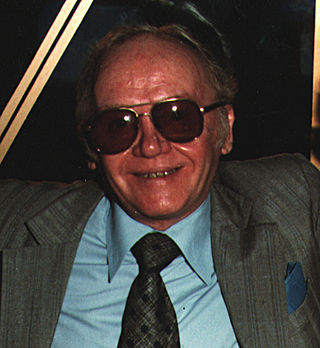
Charles Edward Springall, known professionally as Charlie Drake, was an English comedian, actor, writer and singer.
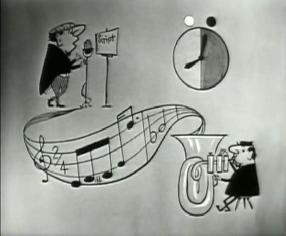
Hancock's Half Hour was a BBC radio comedy, and later television comedy series, broadcast from 1954 to 1961 and written by Ray Galton and Alan Simpson. The series starred Tony Hancock, with Sidney James; the radio version also co-starred, at various times, Moira Lister, Andrée Melly, Hattie Jacques, Bill Kerr and Kenneth Williams. The final television series, renamed simply Hancock, starred Hancock alone.
The Kenny Everett Video Show is a British television comedy and music programme that was made by Thames Television for ITV from 3 July 1978 to 21 May 1981.
Hello Cheeky is a comedy series starring Barry Cryer, John Junkin and Tim Brooke-Taylor, broadcast on BBC Radio 2 between 1973 and 1979, and also broadcast on television - on the ITV network - in 1976. The format was short comedy sketches, often as short as one line, with occasional longer sketches.
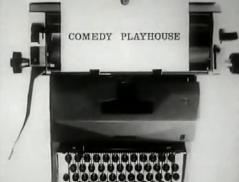
Comedy Playhouse is a long-running British anthology series of one-off unrelated sitcoms that aired for 128 episodes from 1961 to 1975. Many episodes later graduated to their own series, including Steptoe and Son, Meet the Wife, Till Death Us Do Part, All Gas and Gaiters, Up Pompeii!, Not in Front of the Children, Me Mammy, That's Your Funeral, The Liver Birds, Are You Being Served? and particularly Last of the Summer Wine, which is the world's longest running sitcom, having run from January 1973 to August 2010. In all, 27 sitcoms started from a pilot in the Comedy Playhouse strand.

The Paul O'Grady Show was a British comedy chat show presented by comedian Paul O'Grady, first shown on 11 October 2004. The programme is a teatime chat show consisting of a mixture of celebrity guests, comic stunts, musical performances, and occasionally viewer competitions.
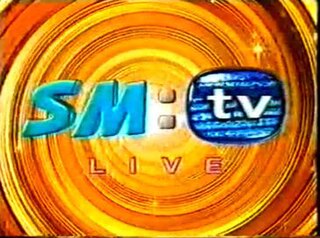
SMTV Live was a British Saturday morning children's television programme, produced by Blaze Television for ITV. Operating on a similar format to other Saturday morning programmes for children, such as BBC's Live & Kicking, the programme premiered on 29 August 1998 and ran for over 270 episodes across five years, before its conclusion on 27 December 2003.
Tonight at the London Palladium is a British television variety show that is hosted from the London Palladium theatre in the West End. Originally produced by ATV for the ITV network from 1955 to 1969, it went by its original name Sunday Night at the London Palladium from 25 September 1955 until the name was changed to The London Palladium Show from 1966 to 2 February 1969.

Harry Hill's TV Burp is a British television comedy series produced by Avalon Television, and written and hosted by comedian Harry Hill. The show ran for 11 series between 2001 and 2012 on ITV1. Each episode sees the host take a humorous look back at the previous week of programming on British television from a range of shows aired on terrestrial and digital channels.

Galaxy was a short-lived British satellite television channel, owned and operated by British Satellite Broadcasting.
The Dad's Army missing episodes are lost episodes and sketches of the British television sitcom Dad's Army. The programme ran for nine series from 31 July 1968 to 13 November 1977. Three out of six episodes from the second series and two of the four Christmas sketches are missing because, at that time, the BBC routinely reused videotape as a cost-saving measure.

The Graham Norton Show is a British comedy talk show presented by Graham Norton. It was initially broadcast on BBC Two, from 22 February 2007, before moving to BBC One in October 2009. It currently airs on Friday evenings, with Norton succeeding Friday Night with Jonathan Ross in BBC One's prestigious late-Friday-evening slot in 2010.
The Losers is a British sitcom that aired on ITV in 1978. Written by Alan Coren, it stars Leonard Rossiter and Alfred Molina. The Losers was made for ITV by ATV and was produced and directed by Joe McGrath.

The Morecambe & Wise Show is a comedy sketch show originally broadcast by BBC Television and the third TV series by English comedy double-act Morecambe and Wise. It began airing in 1968 on BBC2, specifically because it was then the only channel broadcasting in colour, following the duo's move to the BBC from ATV, where they had made Two of a Kind since 1961.

Lost television broadcasts are mostly those early television programs which cannot be accounted for in studio archives.
Bruce Forsyth's Big Night is a TV show screened on ITV on Saturday nights in late 1978. It starred Bruce Forsyth. 12 episodes were broadcast between 7 October and 31 December 1978 with guests including Elton John, Dolly Parton and Karen Carpenter. Two further one-off specials were shown on 4 April 1980 and 21 September 1980 where Forsyth got the chance to perform an hour long show with idol and long-time friend Sammy Davis Jr, who had been a guest on an earlier show, which Forsyth later said was the best show he'd ever been associated with.

Off Their Rockers is a British hidden camera sketch series on ITV. The programme is based on the American series Betty White's Off Their Rockers. The UK series sees senior citizens turn the tables on unsuspecting members of the public in a series of funny and unexpected pranks. The format originates from Belgium.
Drake's Progress was a British sketch show that aired on BBC Television from 1957 to 1958. It was co-written by comedian Charlie Drake, who was also the show's lead performer.
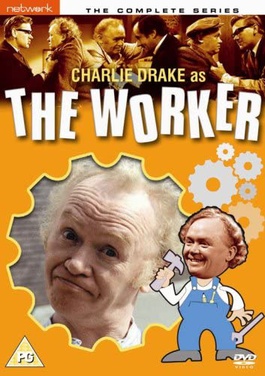
The Worker is a British sitcom that aired on ITV from 1965 to 1978. Co-written by and starring comedian Charlie Drake, the programme revolved around a man who has been dismissed from nearly 1,000 jobs.
References
- 1 2 3 4 5 6 7 8 9 10 Lewisohn, Mark (2003). Radio Times Guide to TV Comedy. London: BBC Worldwide. ISBN 978-0-563-48755-5.
- ↑ "LostShows.com". LostShows.com. 2014. Retrieved 22 January 2014.
- 1 2 3 "LostShows.com". LostShows.com. 2014. Retrieved 22 January 2014.
- ↑ "LostShows.com". LostShows.com. 2014. Retrieved 22 January 2014.